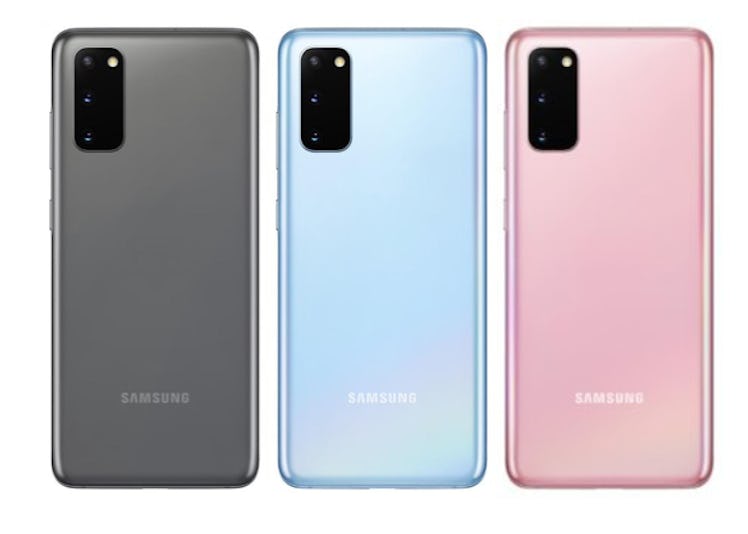
The Samsung Galaxy S20 Camera Might Beat The iPhone 11, But It'll Cost You
On Tuesday, Feb. 11, Samsung announced the new Galaxy S20 series, and there's a lot to take in. The three new phones are the Galaxy S20, Galaxy S20+, and Galaxy S20 Ultra, which is a big jump — at least in terms of the official names — from the 2019 Galaxy S10 release. Since Apple recently released its iPhone 11 line last fall, you might be wondering how the two compare. Take a look at the Samsung Galaxy S20 versus the iPhone 11 to see how they stack up.
Samsung held its annual Unpacked event in San Francisco on Tuesday, and the company unveiled a few new devices. The new Galaxy Buds+ and the foldable Galaxy Z Flip were introduced alongside the Galaxy S20 series. But it's the new 5G-compatible phones that have everybody talking. This is the first major difference between the Galaxy S20 and the iPhone 11.
1. 5G Compatibility
The top-speed 5G network isn't largely available in the United States yet, so this might not be a huge factor at the outset. If you want the option for 5G, though, the Galaxy S20 series phones have 5G capability built in, while the iPhone 11, iPhone 11 Pro, and iPhone 11 Pro Max do not support the 5G network.
2. Cameras
When it comes to the cameras on the Galaxy S20 and iPhone 11, there's a difference in the base models. The Galaxy S20 has three rear cameras: dual 12 MP wide and ultra-wide cameras and a 64 MP telephoto camera, which allows for up to 30x super resolution zoom. The iPhone 11 sports two rear cameras: dual 12 MP wide and ultra-wide cameras that allow for up to 10x digital zoom. The iPhone 11 Pro is more similar to the base model of the Galaxy S20 series, thanks to its triple 12 MP rear cameras.
The iPhone 11 supports Night Mode, which makes is easier to take pictures in dark settings, thanks to the adjustment of the dual camera. While it doesn't have an official name, the Galaxy S20's 64MP camera has large sensors to help it take in more light in dark settings.
In terms of capturing video, the Galaxy S20 supports 8K video recording, while the iPhone and iPhone Pro top out at 4K video recording.
3. Display
The Galaxy S20 and the iPhone 11 displays measure in at 6.2 inches diagonally and 6.1 inches diagonally, respectively. The Galaxy S20 has a more high-definition AMOLED HDR 10+ screen with a pixel resolution of 563 ppi, while the iPhone 11 has an LCD Liquid Retina HD screen with a pixel resolution of 326 ppi.
4. Price
The base model of the Galaxy S20 series starts at $999 for a 128 GB phone, and the iPhone 11 starts at $699 for a 64 GB phone. The Galaxy S20's more natural counterpart, the iPhone 11 Pro, also starts at $999 for a 64 GB phone.
5. Color
When it comes to your phone's hue, the iPhone 11 has a few more options than the Galaxy S20. It's available in Purple, Yellow, Green, Black, White, and Product Red.
The Galaxy S20 comes in Cosmic Gray, Cloud Blue, and Cloud Pink.
6. Battery Life
The iPhone 11 supports up to 10 hours of streaming video playback and up to 65 hours of audio playback. The Galaxy S20 has a 4,000mAh battery, which supports 24-hour battery life. Both the Galaxy S20 and iPhone 11 support fast charging, thanks to their respective 25W fast charger and 18W adapter. Galaxy S20 also has device-to-device charging capability, which means you can charge your phone directly on a compatible Samsung device with no cord required.
When it comes to choosing between the two phones, it depends on what matters most to you. The iPhone 11 is the lower price of the two, while the Galaxy S20 boasts a more advanced camera and battery life. The Galaxy S20, S20+, and S20 Ultra will be available for pre-order as of Friday, Feb. 21, and the phones will become available on Friday, March 6.
This article was originally published on